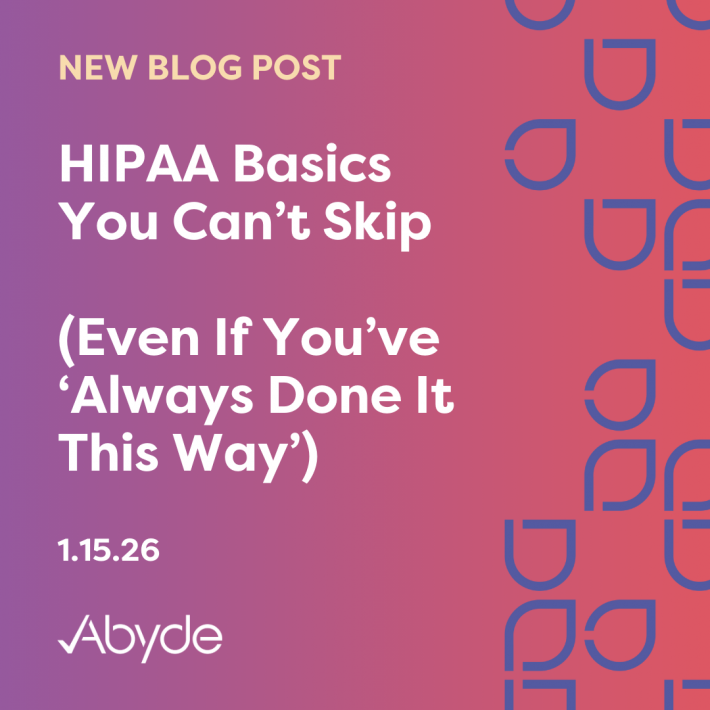July 27, 2020
Even in the midst of COVID-19, the Office for Civil Rights (OCR) hasn’t let up on finding and enforcing HIPAA violations. Within just this past week, both a small healthcare provider along with a larger health system found themselves facing HIPAA violations that resulted in hefty fines – $25,000 and $1.04 million, respectively – as well as extensive corrective action plans.
Continued Disregard for HIPAA
A small practice based out of North Carolina, Metropolitan Community Health Services (d/b/a Agape Health Services) filed their initial breach report all the way back in 2011 when there was an impermissible disclosure of PHI to an unknown email account. While the violation may have been triggered by an impermissible disclosure of protected health information (PHI), the OCR’s hammer was brought down in large part by the practice’s continued disregard for HIPAA requirements and protections for their patient’s PHI. The disclosure impacted over 1,000 patients and the practice’s report opened the doors to an OCR investigation of their entire HIPAA program. The investigation shed light on the practice’s failure to comply with various HIPAA Security Rule regulations, including:
- Proper policies and procedures around PHI use and disclosure
- An updated and documented Security Risk Analysis
- Ongoing HIPAA training for all workforce members
- Additional safeguards implemented after the breach to prevent future violations
Even after reporting the breach in 2011, the practice didn’t implement these missing HIPAA requirements in any hurry. Staff weren’t trained properly on HIPAA until 2016 – five years after the initial complaint was reported. The lack of progress made to safeguard their patients’ information resulted in the OCR levying a $25,000 fine years after the impermissible disclosure took place, in part as a result of continuously failing to mediate the gaps in their HIPAA program. OCR Director, Roger Severino, emphasized the practice’s lack of effort in his statement accompanying the press release. “Health care providers owe it to their patients to comply with the HIPAA Rules. When informed of potential HIPAA violations, providers owe it to their patients to quickly address problem areas to safeguard individuals’ health information.” This fine highlights that it is imperative to not only have a comprehensive HIPAA compliance program in place before a breach occurs, but also ensure that safeguards are implemented after a breach has been identified – the OCR has made it clear that showing a lack of progress is one way to guarantee you end up in their crosshairs.
Unencrypted Laptop
The second violation involved a large healthcare system in Rhode Island, Lifespan ACE, and resulted in a whopping $1,040,000 resolution agreement. Back in 2017, a Lifespan employees’ car was broken into and a single unencrypted laptop containing patient information from various entities within the healthcare system was stolen. This data breach led to the impermissible disclosure of over 20,000 individuals PHI and opened the doors for the OCR’s further investigation. Upon investigation, it was found that they were missing various elements of their HIPAA program including:
- Policies and procedures to properly encrypt all devices used for work purposes that contain sensitive patient information.
- Updated asset inventory of all devices that access the network or contain electronically protected health information (ePHI).
- Proper business associate agreements in place with healthcare provider affiliates, including other Lifespan entities.
Because the laptop was not encrypted, a single technical safeguard that could have prevented the violation, the PHI of any patient that was accessible using the device was at high risk for misuse. Part of the OCR’s investigation revealed “systemic non-compliance” with HIPAA, including various other media and device controls such as proper encryption. “Laptops, cellphones, and other mobile devices are stolen every day, that’s the hard reality. Covered entities can best protect their patients’ data by encrypting mobile devices to thwart identity thieves,” added Roger Severino, OCR Director in the news release. This fine emphasizes that even when theft is outside of a covered entity’s control, the responsibility still falls on the provider to properly encrypt and safeguard that valuable data.
While preventing every single possibility of a data breach might be unrealistic, maintaining a proactive HIPAA compliance program that meets federal requirements and includes all appropriate encryption and technical safeguards is achievable. Ensuring you have a complete program with all aspects of HIPAA reviewed and implemented is key – and stress-free when done with an intuitive software solution like Abyde.





